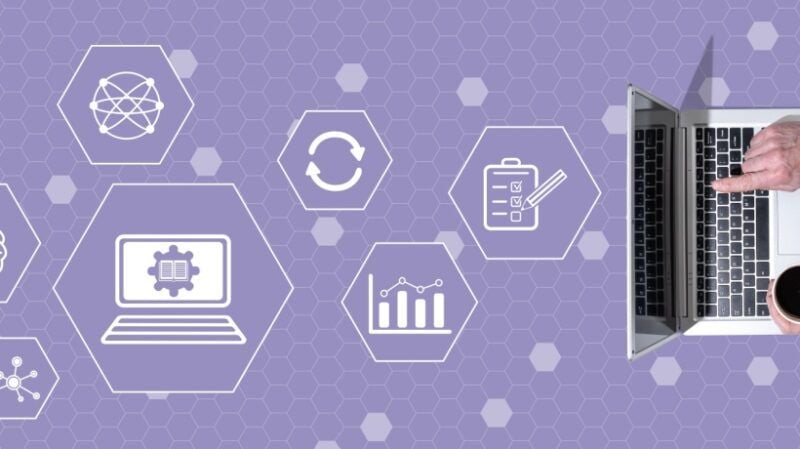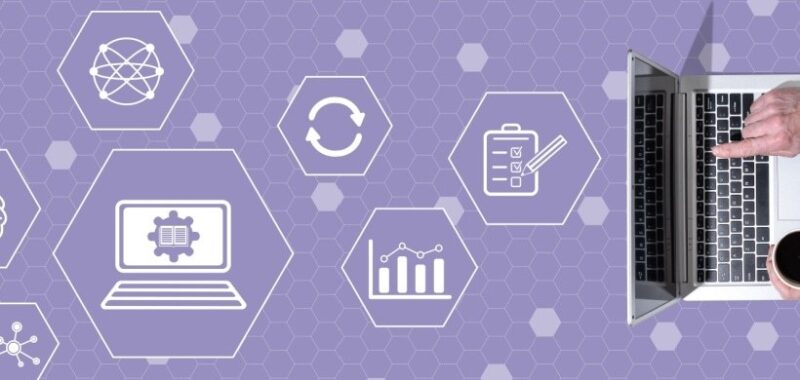
Top LMS Trends Powering 2025 Learning
As we head further into 2025, the shift toward personalized learning is accelerating, and at the center of it all are custom Learning Management Systems (LMSs). The days of rigid, off-the-shelf LMS platforms are being replaced by agile, tailored custom LMS solutions that evolve alongside the learners they serve.
Learning Is No Longer One-Size-Fits-All—And Thank Goodness For That
Let’s face it: we’re living in a time where learners expect the same intuitive, responsive, and personalized experiences they get from Netflix, Spotify, or Amazon—but in the classroom or workplace. And it’s not just a trend. It’s becoming the standard. So, what exactly is driving this LMS evolution, and how are custom LMS solutions paving the way for the future of personalized learning? Let’s dive in.
What Is A Custom LMS, And Why Now?
A custom LMS is a Learning Management System designed from the ground up—or heavily modified—to suit the specific needs of an organization or audience. Unlike generic platforms, which try to serve everyone, a custom LMS can be aligned precisely with learning goals, content structure, industry regulations, and the unique preferences of both instructors and learners.
Why Is This So Important In 2025?
Because people want (and need) learning that meets them where they are. A recent study by LinkedIn Learning found that 91% of employees believe Learning and Development (L&D) improves their job performance, but only 15% say their company provides the right training. That’s a huge gap—and custom LMS platforms are the bridge.
1. Personalization Is No Longer Optional
One of the biggest trends in LMS design right now is hyper-personalization. It’s not enough to give everyone the same content in the same format. Learners today expect adaptive pathways, content recommendations, and feedback that feel tailor-made for their skill levels and learning styles. This means:
- AI-driven course recommendations
Based on user behavior. - Dynamic content
Adapts based on quiz results or performance. - Flexible formats
Like audio lessons, interactive videos, or mobile-first designs.
According to a 2024 Deloitte report, organizations that implemented personalized learning saw a 26% improvement in learner engagement and 19% faster course completion rates. Custom LMS solutions make this level of personalization possible by integrating analytics, user behavior tracking, and modular course design right into the core platform.
2. Integration With Workplace Tools
LMS platforms can no longer operate in a silo. Modern learners are multitasking across tools. Your LMS needs to play nice with the ecosystem. The trend in 2025 is toward seamless integration with these productivity platforms. Imagine this:
- Assignments delivered via communication tools like Slack
- Learning milestones posted in project management tools like Asana
- Calendar syncing with Google Workspace
A custom LMS allows all of this—and more—because it can be built around your team’s workflows, not the other way around.
3. Microlearning For The Win
Attention spans are shrinking. Not just in Gen Z learners, but across the board. People are busy. They want quick wins and bite-sized content they can consume between meetings or while waiting for their coffee. That’s why microlearning has surged in popularity. Custom LMS platforms in 2025 are leveraging this by offering:
- Learning modules under five minutes.
- Gamified quizzes for quick knowledge checks.
- Push notifications to reengage learners with short lessons.
Research from the Journal of Applied Psychology shows that microlearning is 17% more efficient than traditional learning formats and leads to 20% higher knowledge retention. The key? Flexibility. And again, a custom LMS gives you the ability to structure learning your way.
4. Data-Driven Insights And Learning Analytics
What gets measured gets improved, right? Modern LMS platforms are becoming powerful data engines, helping organizations understand what’s working, what’s not, and where learners are struggling. In 2025, learning analytics is not just a nice-to-have feature—it’s the backbone of intelligent course delivery. Custom LMS platforms can track:
- Completion rates by department or location
- Engagement scores by content type
- Quiz performance over time
- Time spent on modules per learner
and then translate all of that into actionable dashboards. Organizations can use this data to refine content, support learners at risk, and even predict future training needs.
5. AI And Automation Are Taking Over (In A Good Way)
Artificial Intelligence (AI) is no longer some buzzword on a tech trend list—it’s deeply embedded in how we learn. In custom LMS platforms, AI is being used to:
- Recommend next-best content based on progress.
- Automate grading and feedback.
- Personalize learning journeys.
- Identify skill gaps.
A 2023 Gartner report projected that by 2025, 80% of corporate LMS platforms will use AI to personalize and optimize learning experiences. That number looks more and more realistic every day. When baked into a custom LMS, AI isn’t just a feature—it’s the engine that keeps learners moving forward.
6. Accessibility And Inclusivity
The modern workforce is diverse—and so are the ways people learn. In 2025, accessibility is no longer a compliance box to tick; it’s a strategic priority. Custom LMS platforms are leading the way by including:
- Text-to-speech for users with visual impairments.
- Adjustable text sizes and color contrast settings.
- Multilingual content support.
- Keyboard-only navigation.
Inclusivity isn’t just good ethics—it’s smart business. The more accessible your content, the broader your reach and the more effective your training.
7. Security And Data Privacy
With cyber threats and data regulations like GDPR, HIPAA, and others tightening worldwide, LMS platforms need to be secure by design. A custom LMS gives you control over:
- Where data is stored.
- Who can access what.
- How long data is retained.
- How security patches are applied.
When compared to off-the-shelf platforms, custom solutions can be designed with privacy as a priority from day one—which is especially important for highly regulated industries. This is where choosing a development partner makes a difference. For example, working with a software development company in Germany offers a strong advantage when it comes to GDPR-compliant systems and high security standards.
8. Gamification And Engagement
Learning doesn’t have to be boring—and in 2025, it’s definitely not. Gamification is becoming a core feature of custom LMS platforms. Why? Because it works. According to TalentLMS report, 83% of employees who receive gamified training feel more motivated, and companies that use gamification see a 60% increase in learner engagement. Custom LMS solutions let you tailor game elements to your audience:
- Points, badges, and leaderboards
- Team challenges or learning sprints
- Progress bars and milestone achievements
Whether you’re training retail employees, onboarding developers, or teaching compliance, gamification adds that extra spark.
9. Mobile-First Learning
In 2025, learning happens everywhere—on the bus, during a break, or while waiting for a meeting to start. If your LMS isn’t optimized for mobile, you’re already behind. Custom LMS solutions are now designed with a mobile-first approach, featuring:
- Offline learning modes.
- Responsive design across devices.
- Push notifications to remind users about modules.
- Gesture-based navigation.
This isn’t just about convenience. Mobile learning leads to higher course completion rates and better learner satisfaction.
10. Content That Evolves With The User
One of the most exciting things about custom LMS platforms in 2025 is their ability to evolve. Think:
- A platform that suggests entirely new learning tracks based on career goals.
- A system that updates training materials as industry standards change.
- Content that shifts tone and delivery as user preferences adapt.
This kind of agility isn’t possible with traditional LMS solutions. But with custom development and a user-first mindset, the possibilities are nearly endless.
Final Thoughts: The Future Is Personal, Agile, And Data-Driven
As we step deeper into 2025, one thing is crystal clear: personalized learning is not a trend. It’s a necessity. And custom LMS platforms are the key to delivering it effectively. Whether you’re building internal training systems, onboarding programs, or external education platforms, the shift toward customization, integration, and automation is already here. The organizations that embrace this future will be the ones whose teams learn faster, retain more, and stay engaged.
And the best part? With today’s tech, you don’t have to choose between control and convenience. With the right custom LMS solution, you can have both. So, are you ready to stop adapting to your LMS—and start building one that adapts to you?
Editor’s Note: Check out our directory to find, choose, and compare eLearning Industry’s Top LMS Software.

